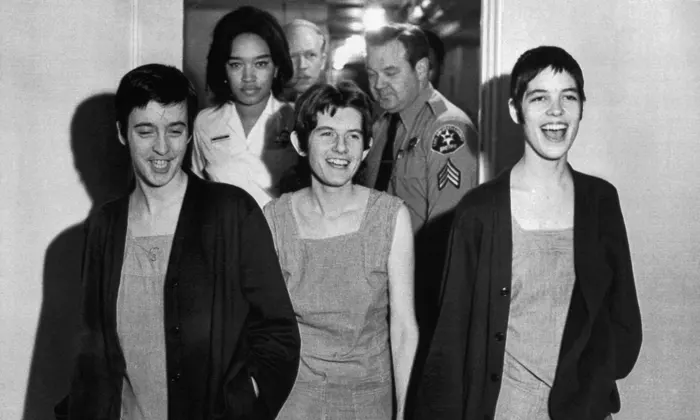January 25, 1971, marked a chilling conclusion to one of the most notorious criminal cases in American history. On this day, Charles Manson and several of his followers were convicted of murder and conspiracy in a case that had shocked and captivated the nation. The Manson Family, as his followers were known, were responsible for a series of brutal murders in 1969, including the infamous Sharon Tate murders, that unveiled a dark underbelly of the counterculture era.
The Manson Family and Their Downward Spiral:
Charles Manson, a charismatic and manipulative figure, had formed a cult-like following in the late 1960s. His group, predominantly young women, lived communally with Manson, initially drawn by his pseudo-philosophical teachings and promises of an idyllic, free life. However, this facade of utopia quickly descended into a world of drugs, psychological control, and, eventually, violence.
The Tate-LaBianca Murders:
The Manson Family’s descent into infamy culminated in the summer of 1969 with a series of heinous murders. On August 9, several members of the group, acting under Manson’s direction, brutally murdered actress Sharon Tate, who was eight months pregnant, and four others at her Los Angeles home. The following night, the group killed Leno and Rosemary LaBianca in their home. The murders were marked by a shocking level of brutality and left the city of Los Angeles in a state of terror.
The Trial and Conviction:
The trial of Charles Manson and his co-defendants – Susan Atkins, Patricia Krenwinkel, and Leslie Van Houten – began in June 1970. The proceedings were a spectacle, with Manson’s bizarre behavior and the followers’ unwavering loyalty to him adding to the macabre nature of the case. Prosecutors laid out a detailed and disturbing picture of Manson’s control over the group and his apocalyptic vision that led to the murders.
On January 25, 1971, the jury returned a verdict. Manson and his followers were found guilty of first-degree murder and conspiracy to commit murder. The trial had lasted seven months, one of the longest in American history at the time.

Impact and Legacy:
The Manson Family murders and subsequent trial had a profound impact on American society. It shattered the peace and love ethos of the 1960s, revealing a dark and violent undercurrent. The case became a symbol of the potential for evil lurking within seemingly benign movements and the dangers of charismatic leadership gone awry.
The trial also brought significant media attention and sparked conversations about the nature of cults, the power of influence, and the capacity for manipulation and control. It remains a subject of intense public fascination, often cited as an extreme example of the potential for human depravity.
Conclusion:
The conviction of Charles Manson and his followers on January 25, 1971, brought an end to a harrowing chapter in American history. While it provided some measure of justice for the victims and their families, the legacy of the Manson Family continues to haunt the collective memory, a reminder of the capacity for darkness that can exist within society. The case stands as a stark warning of the destructive power of manipulation and the depths of human violence.







What do you think?
Show comments / Leave a comment